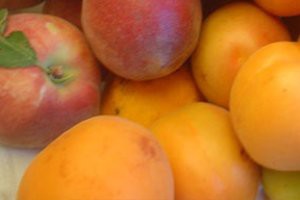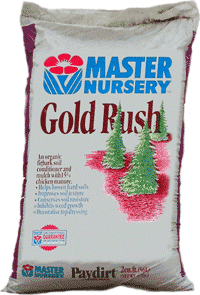 Pluots are amazing hybrid fruits that are part plum and part apricot in heritage. These fruits were initially developed in the late 20th century by Floyd Zaiger in neighboring San Joaquin Valley and are now happily grown commercially and in backyard orchards in parts of Washington and California.
Pluots are amazing hybrid fruits that are part plum and part apricot in heritage. These fruits were initially developed in the late 20th century by Floyd Zaiger in neighboring San Joaquin Valley and are now happily grown commercially and in backyard orchards in parts of Washington and California.
Pluots have a majority of plum parentage and therefore, have smooth skin like plums. Some varieties of pluots are sometimes called interspecific plums or dinosaur eggs.
Check with us about varieties for cross pollination.
The pluot is often confused with the aprium which is another plum and apricot hybrid with mostly apricot heritage. Like apricots, apriums have a slightly fuzzy skin. Pluots and apriums are known for their sweetness and flavor; the sugar content of these fruits is much higher than that of a plum or apricot alone. Each of these varieties requires another pluot or a Japanese plum to pollenize.
Flavor King
Taste test winner. Unique plum-apricot hybrid with a sensational bouquet and sweet, spicy flavor. Reddish-purple skin, crimson flesh. Naturally small tree.
Dapple Dandy
Taste test winner. Ranks with Flavor King Pluot® among the all-time top five best-flavored fruits at Dave Wilson Nursery tastings. Creamy white and red-fleshed freestone with wonderful plum-apricot flavor. Skin greenish-yellow with red spots, turning to a maroon and yellow dapple.
Splash
Small to medium size red-orange colored fruit with very sweet orange flesh. Round to heart shaped fruit is excellent eaten fresh, dried or in desserts. Upright tree sets large crops once established. Chilling requirement 400 hours or less.
Multi-Grafted Pluot Tree
Enjoy 3-4 varieties of pluots on one tree. These trees have several grafts from different varieties on a single trunk. Pluots taste amazing, but a multi-graft tree brings the benefit of progressive ripening through the season. Some are ripe early, and some are ripe late…Plus, the different varieties pollenize each other.
 We recommend Gold Rush planting amendment when planting fruit trees. Gold Rush is a blend of Fir Bark Compost and 15% Chicken Manure.
We recommend Gold Rush planting amendment when planting fruit trees. Gold Rush is a blend of Fir Bark Compost and 15% Chicken Manure.
As a compost, fir bark holds up well over time. The addition of chicken manure provides a needed boost of nitrogen plus other trace nutrients.
Mix Gold Rush with existing soil at a ratio of 50/50.
Follow us in Social Media